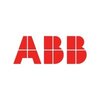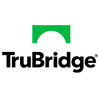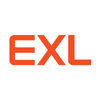Accounts Receivable Analyst
40+ Accounts Receivable Analyst Interview Questions and Answers

Asked in Flex

Q. What is invoice? What is accounts Receivables? What is accoungts payables?
An invoice is a document sent by a seller to a buyer, detailing the products or services provided and the amount due. Accounts Receivables are amounts owed to a company by its customers. Accounts Payables are amounts owed by a company to its suppliers.
An invoice is a bill sent by a seller to a buyer for products or services provided.
Accounts Receivables are the amounts owed to a company by its customers for goods or services provided on credit.
Accounts Payables are the amount...read more

Asked in Pacific BPO

Q. What is the concept of denial in Revenue Cycle Management (RCM)?
Denial in Revenue Cycle Management (RCM) refers to the rejection of a claim for reimbursement by a payer.
Denials can occur for various reasons such as incorrect patient information, lack of pre-authorization, coding errors, or exceeding the coverage limit.
Analyzing denial trends can help identify areas for improvement in the revenue cycle process.
Effective denial management involves appealing denied claims, correcting errors, and preventing future denials.
Examples of denials ...read more
Accounts Receivable Analyst Interview Questions and Answers for Freshers

Asked in Northern Trust

Q. What is the difference between a trial balance and a balance sheet?
Trial balance is a list of all general ledger accounts with their respective debit or credit balances, while balance sheet is a financial statement that shows a company's assets, liabilities, and shareholders' equity at a specific point in time.
Trial balance is a working paper that helps in preparing financial statements, including the balance sheet.
Trial balance lists all accounts and their balances, while balance sheet summarizes the financial position of a company.
Trial ba...read more

Asked in Pacific BPO

Q. What are five common denials in revenue cycle management (RCM)?
Common denials in revenue cycle management include lack of pre-authorization, coding errors, timely filing limits, duplicate billing, and non-covered services.
Lack of pre-authorization for services
Coding errors leading to claim denials
Exceeding timely filing limits for claims submission
Duplicate billing for the same service
Services not covered by insurance
Asked in Mod Forge

Q. What are Electronic Credit Ledgers under GST?
Electronic Credit Ledgers (ECL) is a digital record of all the credits received by a taxpayer under GST.
ECL is a part of the GST system that helps taxpayers keep track of their credits.
It is a digital record of all the credits received by a taxpayer under GST.
ECL is maintained on the GST portal and is updated automatically when a taxpayer receives a credit.
It helps in reducing errors and mismatches in claiming input tax credit.
ECL can be used to reconcile the credits received...read more

Asked in ABB

Q. What is the journal entry for the process of invoice generation?
The journal entry for the process of invoice generated involves debiting accounts receivable and crediting revenue.
Debit accounts receivable to increase the amount owed by customers
Credit revenue to recognize the income earned from the sale
Example: Debit Accounts Receivable $1,000, Credit Sales Revenue $1,000
Accounts Receivable Analyst Jobs




Asked in Flex

Q. Types of invoices? Credit purchases and sales? Contents of Invoices
Types of invoices include proforma, commercial, credit, and debit. Credit purchases involve buying on credit terms, while credit sales involve selling on credit terms. Invoices typically include details such as date, invoice number, items/services provided, quantity, price, and payment terms.
Types of invoices: proforma, commercial, credit, debit
Credit purchases: buying on credit terms
Credit sales: selling on credit terms
Contents of invoices: date, invoice number, items/servic...read more

Asked in MedExpert Billing and Consulting

Q. What are primary, secondary, and tertiary insurances?
Primary, secondary, and tertiary insurance refer to the order in which insurance policies are billed for healthcare services.
Primary insurance is the first insurance policy to be billed for healthcare services.
Secondary insurance is the second insurance policy to be billed after the primary insurance has paid its portion.
Tertiary insurance is the third insurance policy to be billed, typically used for additional coverage beyond what the primary and secondary insurances cover.
Share interview questions and help millions of jobseekers 🌟


Asked in Genpact

Q. What is the process of Order to Cash (O2C)?
Order to Cash (O2C) is the end-to-end process of receiving and fulfilling customer orders, from order placement to payment collection.
Order Placement: The process begins when a customer places an order, either through an online platform or directly with a sales representative.
Order Processing: Once the order is received, it is verified for accuracy, and inventory is checked to ensure the product is available.
Order Fulfillment: The order is then picked, packed, and shipped to ...read more

Asked in KPMG Global Services

Q. What is the journal entry for accrued expenses?
Accrued expenses are liabilities for services or goods received but not yet paid for, recorded through a journal entry.
Definition: Accrued expenses represent costs that have been incurred but not yet paid, such as wages, utilities, or interest.
Journal Entry: To record an accrued expense, debit the expense account (e.g., 'Wages Expense') and credit the liability account (e.g., 'Accrued Liabilities').
Example: If $1,000 in wages is owed but not yet paid, the entry would be: Debi...read more

Asked in Qatar Airways

Q. What applications are used for the chargeback process?
Applications commonly used for chargeback process include SAP, Oracle, and QuickBooks.
SAP
Oracle
QuickBooks

Asked in TruBridge Healthcare Private Limited

Q. What are the common Medical Billing Scenarios?
Common medical billing scenarios include claim denials, underpayments, and patient billing issues.
Claim Denials: Claims may be denied due to incorrect coding or missing information. For example, a claim for a procedure may be denied if the diagnosis code does not support the medical necessity.
Underpayments: Insurance companies may pay less than the billed amount due to contractual agreements. For instance, a hospital may bill $10,000 for a service but receive only $7,000 from...read more

Asked in R1 RCM

Q. Apart from your hobbies, what do you like to do?
I enjoy exploring new cuisines, volunteering, and engaging in outdoor activities like hiking and biking.
Exploring new cuisines: I love trying out different restaurants and cooking new recipes at home.
Volunteering: I dedicate time to local charities, helping with food drives and community events.
Outdoor activities: I often go hiking on weekends, enjoying nature and staying active.

Asked in Qatar Airways

Q. What is your understanding of Counterfeit fraud?
Counterfeit fraud type involves creating fake or unauthorized copies of products or documents.
Counterfeit fraud is a type of fraud where fake or unauthorized copies of products or documents are created.
Counterfeit fraud can occur with currency, designer goods, electronics, and documents like IDs or passports.
It is illegal and can result in financial losses for businesses and individuals.
Counterfeit fraud can also pose risks to consumer health and safety if fake products do no...read more

Asked in BNY

Q. Can you explain accounts receivable?
Accounts receivable refers to the money owed to a company by its customers for goods or services provided on credit.
Accounts receivable is an asset on a company's balance sheet.
It represents the amount of money that a company is owed by its customers.
It is created when a company sells goods or services on credit.
The company expects to receive payment for these goods or services at a later date.
Examples include invoices sent to customers, outstanding payments, and payment plan...read more

Asked in ABB

Q. What is the journal entry for invoice generation?
The journal entry for invoice generation involves debiting accounts receivable and crediting revenue.
Debit accounts receivable to increase the amount owed by customers
Credit revenue to recognize the income earned from the sale
Example: Debit Accounts Receivable $1,000, Credit Sales Revenue $1,000

Asked in EXL Service

Q. What are the different types of credit card fraud?
Types of credit card fraud include identity theft, card-not-present fraud, skimming, and account takeover.
Identity theft: When a fraudster steals someone's personal information to open a credit card account in their name.
Card-not-present fraud: Fraudulent transactions made without physically presenting the card, such as online purchases.
Skimming: When a device is used to capture credit card information from a card's magnetic stripe.
Account takeover: When a fraudster gains acc...read more

Asked in Jindal X

Q. What are the specific modifiers used?
Modifiers are codes used to provide additional information about a service or procedure in billing.
Modifiers can indicate that a service was altered in some way, such as '25' for a significant, separately identifiable evaluation.
Example: Modifier '50' is used for bilateral procedures, indicating that a procedure was performed on both sides of the body.
Modifiers help in clarifying the circumstances of a service, like '59' which indicates a distinct procedural service.
They are ...read more

Asked in Jindal X

Q. What information is in box number 25 on the CMS form?
Box no. 25 in CMS forms typically refers to specific claim information for medical billing.
Box 25 usually contains the provider's NPI (National Provider Identifier).
It may also include the provider's tax ID number for billing purposes.
In some cases, it can indicate the type of service provided.
Example: If a physician performed a surgery, the corresponding code may be listed here.

Asked in Jindal X

Q. What is the payer ID of Medicare?
The Medicare payer ID is a unique identifier used for billing and claims processing in the healthcare system.
Medicare payer ID varies by region and type of service.
Common Medicare payer IDs include: 12345 for Part A and 67890 for Part B.
Providers must verify the correct payer ID for accurate claims submission.
Payer IDs can be found in the Medicare Provider Manual or on the CMS website.

Asked in Knack Global

Q. What do you know about medical billing?
Medical billing involves submitting and following up on claims with health insurance companies to receive payment for services provided by healthcare providers.
Medical billing involves coding diagnoses and procedures using standardized codes such as ICD-10 and CPT.
Claims are submitted to health insurance companies for reimbursement of services provided to patients.
Follow-up is done to ensure timely payment and resolve any issues or denials.
Knowledge of medical terminology and...read more
Asked in Mod Forge

Q. 1.Depreciation treatment in Balance sheet???
Depreciation treatment in balance sheet involves recording the decrease in value of assets over time.
Depreciation is a non-cash expense that reduces the value of assets on the balance sheet.
It is recorded as an expense on the income statement and reduces the net income.
Depreciation can be calculated using various methods such as straight-line, double-declining balance, or units of production.
The accumulated depreciation is shown as a contra-asset account on the balance sheet....read more

Asked in CorroHealth infotech

Q. Describe how to resolve denials.
Denials can be solved by identifying the root cause, appealing with supporting documentation, and implementing process improvements.
Identify the reason for denial by reviewing the denial code and explanation.
Appeal the denial with any necessary supporting documentation or additional information.
Implement process improvements to prevent future denials, such as updating billing codes or improving documentation.
Track and monitor denials to identify trends and address recurring i...read more

Asked in TruBridge Healthcare Private Limited

Q. What is an Advanced Beneficiary Notice?
An Advanced Beneficiary Notice (ABN) informs patients about non-covered services and potential costs before receiving care.
ABN is used in Medicare to notify patients that a service may not be covered.
Patients must sign the ABN to acknowledge understanding of potential costs.
Example: If a doctor recommends a test that Medicare may not cover, an ABN is issued.
The ABN helps patients make informed decisions about their healthcare options.

Asked in Genpact

Q. What are the golden rules of accounting?
Golden rules of account refer to basic principles of accounting that should be followed to maintain accurate financial records.
Debit the receiver, credit the giver
Debit what comes in, credit what goes out
Every debit has a corresponding credit
Assets = Liabilities + Equity
Revenue - Expenses = Net Income

Asked in BNY

Q. Can you give an example of accounts receivable?
Accounts receivable refers to the money owed to a company by its customers for goods or services provided on credit.
A customer purchases goods on credit and agrees to pay within 30 days
A company bills a client for services rendered and expects payment within 60 days
A retailer allows a customer to pay for a purchase in installments over a period of time
A supplier ships goods to a customer and invoices them for payment upon receipt
A landlord bills a tenant for rent and expects ...read more

Asked in CorroHealth infotech

Q. Coordination of benefits denial.
Coordination of benefits denial involves determining which insurance company is responsible for paying a claim when a patient has multiple insurance policies.
Review the patient's insurance policies to determine which one is primary and which one is secondary.
Submit the claim to the primary insurance company first.
If the primary insurance company denies the claim, submit it to the secondary insurance company with the denial from the primary insurance.
Document all communication...read more

Asked in AGS Health

Q. What is the reason for leaving your last job?
I left my last job to seek new challenges and opportunities for professional growth in a dynamic environment.
I was looking for a role that offered more opportunities for advancement, as my previous position had limited growth potential.
The company underwent restructuring, which led to changes in team dynamics and job responsibilities that no longer aligned with my career goals.
I wanted to work in a more collaborative environment, as my last job was quite isolating and didn't ...read more

Asked in Omega Healthcare

Q. What is Medicare and Medicaid
Medicare and Medicaid are government-sponsored healthcare programs in the United States.
Medicare is a federal health insurance program primarily for individuals aged 65 and older, as well as younger people with certain disabilities.
Medicaid is a joint federal and state program that helps with healthcare costs for people with limited income and resources.
Medicare is funded through payroll taxes, while Medicaid is funded by both the federal government and individual states.
Both...read more

Asked in TCS

Q. Type of accounts and golden rules
Accounts can be classified as assets, liabilities, equity, revenue, or expenses. Golden rules include Debit the receiver, Credit the giver, Debit what comes in, Credit what goes out, Debit expenses and losses, Credit income and gains.
Types of accounts include assets, liabilities, equity, revenue, and expenses.
Golden rules for accounts include Debit the receiver, Credit the giver, Debit what comes in, Credit what goes out, Debit expenses and losses, Credit income and gains.
For...read more
Interview Questions of Similar Designations
Interview Experiences of Popular Companies






Calculate your in-hand salary
Confused about how your in-hand salary is calculated? Enter your annual salary (CTC) and get your in-hand salary


Reviews
Interviews
Salaries
Users










